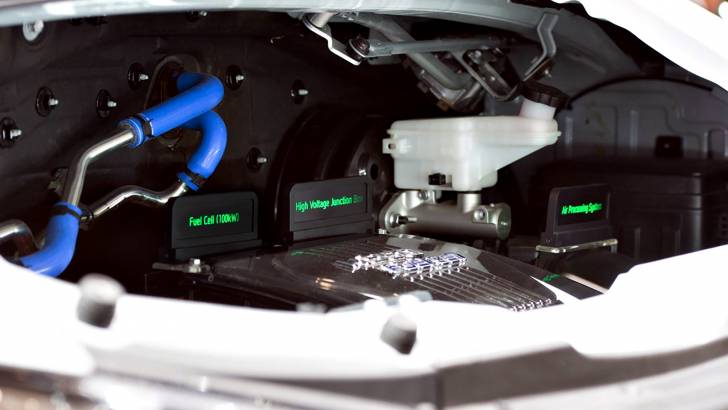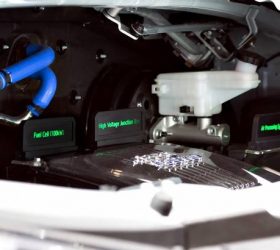CEOs and experts from key industries – including Martin Daum of Daimler Trucks, Florent Menegaux of Michelin and Gerrit Marx of CNH Industrial – joined EU decision-makers, end-users and infrastructure providers recently for an online conference on how zero-emission commercial vehicles can help decarbonise the road transport sector.
 Battery electric vehicles for professional transport operators are already available or in the pipeline, and the offer will continue to grow rapidly. Hydrogen is also essential for decarbonising road freight transport. Truck manufacturers are therefore investing massively to develop hydrogen fuel-cell electric trucks, especially with a view to medium- and long-haul transport.
Battery electric vehicles for professional transport operators are already available or in the pipeline, and the offer will continue to grow rapidly. Hydrogen is also essential for decarbonising road freight transport. Truck manufacturers are therefore investing massively to develop hydrogen fuel-cell electric trucks, especially with a view to medium- and long-haul transport.
The conference – jointly organised by the European Automobile Manufacturers’ Association (ACEA) and Hydrogen Europe (HE) – focused on how to accelerate the market deployment of these trucks. It covered issues such as hydrogen corridors, hydrogen infrastructure suitable for trucks, the role of equipment suppliers, urban logistics and transport operators. More than 500 participants tuned in to the live discussions.
Speakers highlighted that many equally-important factors would have to be in place for a successful transition: efficient and commercially viable zero-emission vehicles, a sufficiently dense network of hydrogen re-fuelling stations, and a supportive policy framework to enable profitable operations.
“Truck manufacturers are fully committed to carbon-neutrality by 2050 at the latest. We are an important part of the transport and logistics ecosystem and are ready to take the lead to make this transition,” said ACEA Director General, Eric-Mark Huitema. “To achieve this goal, we need to join forces with all players, and we need a coherent policy framework to enable and support the transition.”




